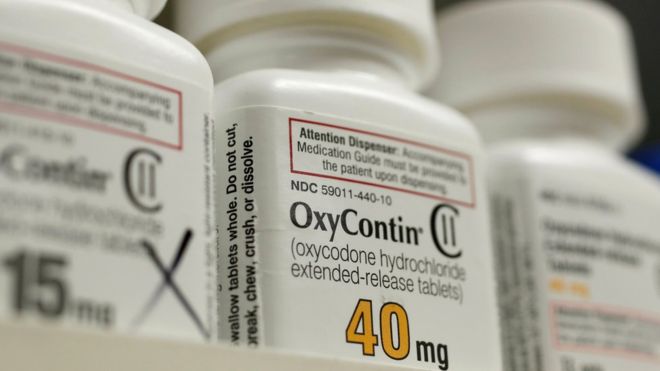Brexit options ‘narrowing’, says health secretary
Published on: March 26, 2019

The options for Brexit “are narrowing”, Health Secretary Matt Hancock has said, after MPs voted to seize control of the parliamentary timetable.
The PM was dealt a fresh blow as the government was defeated by 27 votes on Monday, on a plan designed to find out the kind of deal MPs would support.
Thirty Conservative MPs rebelled, including three ministers.
Mr Hancock said the government would listen to MPs but “can’t pre-commit to following whatever they vote for”.
He told Radio 4’s Today programme that the Commons had rejected no deal and a second referendum, and urged MPs to back the PM’s Brexit deal.
Jacob Rees-Mogg, chairman of the Eurosceptic group of Tory MPs the European Research Group (ERG), is among the group of pro-Brexit MPs who the prime minister has been trying to persuade to back her deal.
On his ConservativeHome podcast, he said: “I have always thought that no deal is better than Mrs May’s deal, but Mrs May’s deal is better than not leaving at all.”
But the Democratic Unionists, whose 10 MPs prop up Mrs May’s government, urged Tory Brexiteers to continue to “stand firm” in their opposition to the prime minister’s deal unless there were “significant changes”.
Their Brexit spokesman Sammy Wilson suggested extending negotiations by a year was preferable to accepting the deal on offer as this would allow the UK to “have a say on the things which affect us during that time”.
“Surely this is a better strategy than volunteering to be locked into the prison of the withdrawal deal with the cell door key in the pocket of Michel Barnier,” he wrote in the Daily Telegraph.
Ministerial resignations
On Monday night, MPs voted in favour of Conservative backbencher Sir Oliver Letwin’s cross-party amendment, which will allow MPs to put forward motions relating to Brexit – most likely a series of so-called indicative votes.
Because of this, MPs will be able to vote on a number of options on Wednesday – likely to include a “softer Brexit”, a customs union with the EU and another referendum – designed to test the will of Parliament to see what, if anything, commands a majority.
Richard Harrington, Alistair Burt and Steve Brine resigned to join the rebels, with Mr Harrington accusing the government of “playing roulette with the lives and livelihoods” of Britons.
The prime minister said she was “sceptical” about the process – as it was not guaranteed to produce a majority for any one course of action – and she would not commit the government to abiding by the result.
“The votes could lead to an outcome that is un-negotiable with the EU,” she told MPs.
Mr Hancock told Today: “In the previous votes there have been a multitude of potential different options – the sorts of options, like a second referendum, which I think would be a bad idea, that’s been rejected.
“The idea of having a no deal…the Commons is absolutely clear it won’t allow and will legislate against it if necessary. That means that the options are narrowing.”
What is the voting process?
Commons Speaker John Bercow said Sir Oliver Letwin will table a business motion at 16:00 GMT and MPs will have until the end of Tuesday to put forward matters for consideration under indicative votes.
The exact method of indicative voting will be debated on Wednesday, Mr Bercow said.
When asked if the prime minister will abide by the indicative votes, Mr Hancock said it was important for the government to listen to MPs.
“But we can’t pre-commit to following whatever they vote for, because they might vote for something that is completely impractical,” he said.
But Labour’s Hilary Benn said MPs have to take responsibility for the Brexit process.
Mr Benn, chairman of the Commons Exiting the European Union Committee, told the Today programme: “If the government isn’t going to do its job then Parliament is going to have to take responsibility, and that is what we are doing on Wednesday.”






